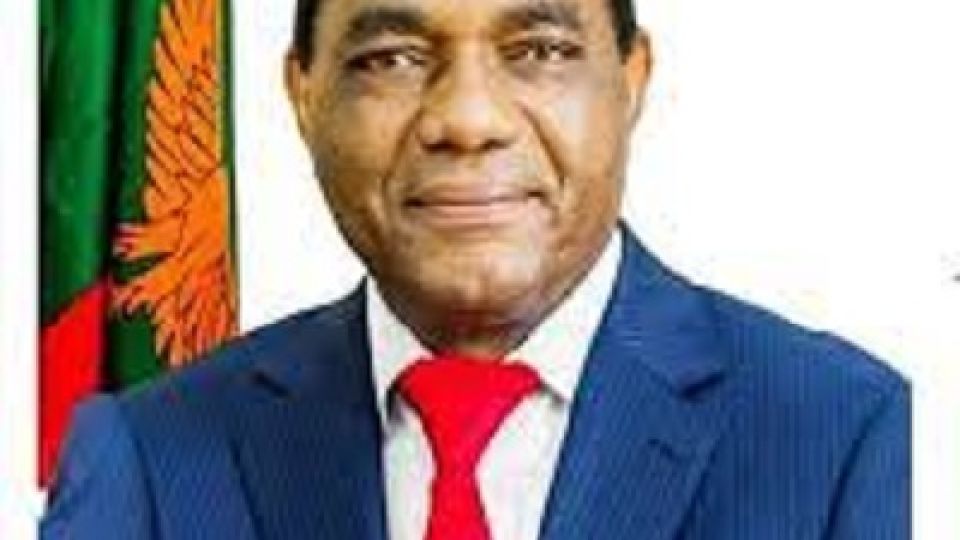from ARNOLD MULENGA in Lusaka, Zambia
Zambia Bureau
LUSAKA, (CAJ News) – RELATIONS between the Zambian government, on one side, and the church, human rights groups as well as the legal fraternity on the other, are at an all-time low.
Accusations that the new administration is entrenching dictatorship have strained the ties.
This comes at a time of plans to amend the constitution and extend presidential terms, relentless arrests of officials of the opposition, mainly the Patriotic Front (PF), a former ruling party, alleged selective application of the law in the fight against corruption, persecution of civil servants deemed sympathetic to the opposition, social unrest and heavy-handedness by state security personnel.
Critics argue these are tactics by President Haikande Hichilema (61) to maintain a grip on power.
This would be contrary to his pledge prior to him assuming power in August 2021 when he promised to revive democracy in Zambia, at the helm of the United Party for National Development (UPND) administration.
Then an opposition leader, he defeated incumbent Edgar Lungu, who led the PF government that was accused of running the Southern African country with an iron fist.
The Council of Churches in Zambia (CCZ) is the latest critic to voice concern over governance.
It particularly lamented the arrests of several opposition politicians on alleged trumped-up charges and the government’s suspected interference in the infighting ravaging the PF.
The alleged involvement in the internal squabbles of the opposition is denounced as a ploy to weaken the PF and establish a one-party state.
CCZ bemoaned the shrinking democratic space and increase in the cost of living.
“CCZ believes an unhealthy political and social environment can have detrimental effects on a country, potentially leading to challenges in governance,” Fr Emmanuel Chikoya, CCZ General Secretary, said.
The church leader added, “When a nation faces widespread issues such as corruption, social unrest, economic inequality, or political instability, it can indeed become more difficult to govern effectively.”
The Evangelical Fellowship of Zambia, Zambia Conference of Catholic Bishops, and Lawyers Association of Zambia have in recent weeks raised similar concessions.
“Our call is that the government should pay attention and take heed of the advice rather than being defensive,” Chikoya said.
Hichilema’s government has scoffed at allegations it was shrinking the democratic space.
It has denied having influence in the arrest of opposition officials or meddling in the squabbles of the PF.
“Being an opposition leader doesn’t grant immunity to lawlessness,” Clayson Hamasaka, State House Chief Communications Specialist, said.
“This will not be accepted, now or in future. It’s crucial to clarify that no individual in Zambia will be shielded from the law based on their political affiliation.”
Last Friday, suspected ruling party cadres allegedly physically attacked Jones Kalyati, mayor of the third largest city of Ndola at the international football match between Zambia and visiting Congo.
The Evangelical Fellowship of Zambia (EFZ) protested.
“Such political madness by the UPND cadres is worrisome and must be cured immediately,” Rev. Chilekwa Mulenga, EFZ chairperson, said.
Over 95 percent of debt-saddled Zambia’s population of 20,7 million people is Christian.
There were tragic incidents this week as it emerged police had tortured a suspect to death at a station in the Central province and Zambia National Service officers shot dead a 15-year-old during an anti-smuggling operation in the Copperbelt.
Residents rioted at the incidents.
Mweelwa Muleya, spokesperson of the Human Rights Commission, said the death of the suspect at Mkushi Police Station was one of several such “heinous” cases of torture.
The rights group said these render credence to the campaign by the commission for the enactment of a law that criminalises torture and other cruel, inhuman or degrading treatment or punishment.
“The failure by the government to enact an anti-torture law is giving an impression of tacit approval of torture as an acceptable means of carrying out investigations and interrogations by law enforcement officers, thereby leading to deaths and permanent disabilities of suspects,” Muleya said.
Muleya noted Zambia had made a milestone at the end of 2022 when Hichilema abolished the death penalty, which effectively halted judicial killings in Zambia.
“It is therefore ironic and acceptable that the country should be experiencing extra-judicial killings through acts of torture and other cruel, inhuman or degrading treatment or punishment,” Muleya said.
Then an opposition leader, businessman Hichilema was allegedly tortured while in detention between April and August 2017 when he had been arrested after his convoy failed to give way to Lungu’s.
This paints a sad state of affairs in a country long considered a model of democracy in the continent.
– CAJ News

